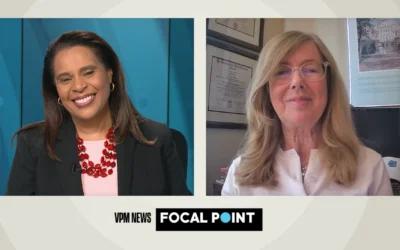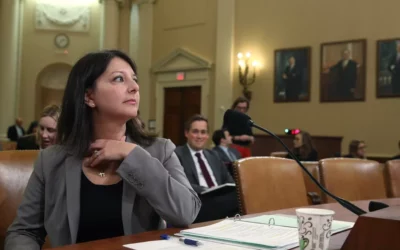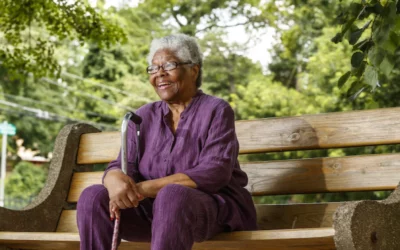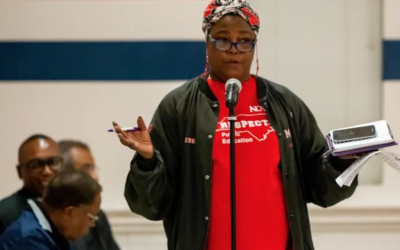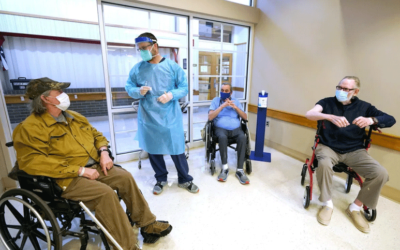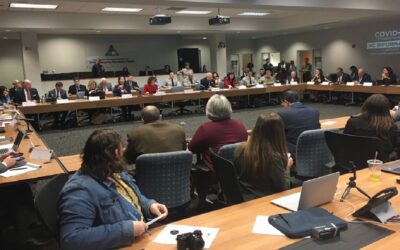WCH In the News

Needed – A new ‘New Deal’ in America
Original article courtesy of Triangle Business Journal.
Updated 5:59AM ET, Fri April 24, 2020
The coronavirus pandemic has totally disrupted the American economy, shutting down businesses, idling workers and sending the stock market into a tailspin. Although the pandemic is far from over, concern over the attendant economic malaise is creating enormous angst and fostering intense political discourse regarding “reopening” the economy.
While the most appropriate time to reopen the economy is debatable, one thing is clear: The economy as we knew it prior to the pandemic is unlikely to return. The $2.2 trillion stimulus package and other financial tools the federal government is leveraging, while unquestionably necessary and urgently needed, will not be adequate to fully revive the U.S. economy and put Americans back to work.
Despite federal loans and grants to weather the pandemic, many small businesses will find it difficult, if not impossible, to survive and prosper in the aftermath of the pandemic, which will permanently idle workers and adversely affect the supply chains that supported their operations. Fully one-half of small businesses, according to JPMorgan Chase, have only 15 days of cash on hand to buffer any loss.
If we are to return to any sense of normalcy, America needs a “new” New Deal, one that focuses laser like on fixing spaces and places in our economic system. Not just roads, bridges, airports, seaports and broadband access issues that undergird the nation’s digital divide. But also, sick buildings — aging and structurally deteriorating houses, schools and public venues that expose residents and the public to a host of environmental hazards (mold, mildew, asbestos and lead) that suppress the immune system and substantially reduce life expectancy.

James H. Johnson is the professor of strategy and entrepreneurship at the UNC-Chapel Hill Kenan-Flagler Business School. University of North Carolina
In America, these problems are most evident in hyper-segregated and concentrated-poverty neighborhoods and communities. African Americans and other people of color disproportionately inhabit these areas, which are proving to be hotspots for coronavirus infections and deaths.
A “new” New Deal requires a comprehensive review of existing federal, state and local government policies and regulations governing land-use as well as all types of development (residential, retail, commercial, etc.). Moving forward, all development and redevelopment projects must adhere to the triple-bottom-line-principles of sustainability. That is, they must minimize — to the maximum extent possible — adverse impacts on natural resources and the physical environment; adhere to principles of social justice; and, in the process, return equitable shareholder/stakeholder value.
We can leverage a host of “equity tools” to achieve these desired outcomes. In striving to create diverse, healthy and viable neighborhoods and communities, for example, it is vitally important to abandon exclusionary zoning regulations that support segregation or not-in-my-backyard (NIMBY) behaviors and embrace inclusionary zoning polices that promote integration or YIMBY.
The “new” New Deal for America also must create an inclusive supply-chain management system that levels the playing field for historically underutilized businesses that aspire to access government contracts — in this instance, to fix the nation’s deteriorating spaces and places. However, we must not position supplier diversity in contracting and procurement solely as a compliance issue or legal requirement under equal opportunity laws. It also, and perhaps more importantly, must be framed as a strategic business imperative in an increasingly more diverse — racially, ethnically and socioeconomically — society and marketplace.
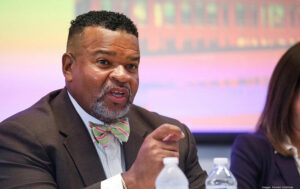
Wendell Davis is the county manager in Durham County. Kenan Institute
We know that minority suppliers are more likely than majority suppliers to hire minority workers. Thus, it is reasonable to surmise that an inclusive system of contracting and procurement will address another critical issue: the enormous under-representation of people of color in some economic sectors like transportation.
Additionally, the “new” New Deal must dismantle barriers to economic participation in the American enterprise system. Many of the known barriers are the product of discriminatory policymaking, especially in the areas of crime and criminal justice, which disproportionately affect people of color, in general, and black males, in particular. By eliminating such barriers, we can begin to solve America’s inequality problem and rebuild the nation’s middle-class in the process.
Finally, we need to mobilize collective ambition to successfully execute the “new” New Deal. There are two critical elements to building collective ambition around such a policy intervention: collaborative engagement of diverse stakeholders and disciplined execution of strategy. In the words of Jim Collins, author of “Good to Great,” we need to make sure every American — irrespective of political affiliation — is on the “new” New Deal bus, seated in the right seat and headed in the right direction to ensure successful implementation with fidelity.
We build collective ambition by helping America’s diverse citizenry to recognize both the personal and societal benefits of such an initiative. This is a sure-fire way for America to regain its greatness.
Authors James H. Johnson Jr. is a professor of entrepreneurship & strategy at UNC Kenan-Flagler Business School, and Wendell M. Davis is the county manager in Durham County. They can be reached at jim_johnson@unc.edu and county_manager@dconc.gov.
Other News
Mass Migration: Why are people moving south?
Mass Migration: Why are people moving south?Virginia’s demographics are changing. Jeanne Milliken Bonds, public policy professor at UNC Kenan-Flagler Business School explains the shifts. Home | Publications | Mass Migration: Why are people moving south?...
The EIDC Economic Development Journal – Fall 2023
WCH In the NewsThe EIDC Economic Development Journal - Fall 2023 International Economic Development Council1275 K Street, NW, Suite 300 • Washington, DC 20005 • www.iedconline.orgChair: Jonas Peterson, CEcDPresident & CEO: Nathan OhleEditor: Jenny Murphy.November...
The painful pandemic lessons Mandy Cohen carries to the CDC
The painful pandemic lessons Mandy Cohen carries to the CDC"North Carolina initially failed to prioritize testing for people who were exposed to #COVID19 because of where they live or work." - Jeanne Milliken Bonds, Professor of Social Impact Investing at the...
Analysis: South’s Population Growth Can Lead to Prosperity if Local Governments Support Entrepreneurs
WCH In the NewsAnalysis: South's Population Growth Can Lead to Prosperity if Local Governments Support Entrepreneurs Original article courtesy of Daily Yonder.by James H. Johnson, Jr., Jeanne Milliken Bonds and Wendell M. Davis November 30, 2022 ...
Germinating New Healthy Cross-Sector Collaborations
WCH In the News Germinating New Health Cross-Sector Collaborations Original article courtesy of Build Healthy Places Networkby Jacob KraybillApril 13, 2017 As part of the Healthy Communities Initiative blog series, we highlight the role of regional Federal...
When you can’t afford the cost of life: Redefining poverty’s parameters
WCH In the NewsWhen you can't afford the cost of life: Redefining poverty's parameters Original article courtesy of The News & Observer.May 8, 2022. Lars Dolder, Staff Writer. When Cherrelle Ramsey moved last year into an aging apartment near downtown Cary,...
Analysis: Addressing Our Rural Childcare Crisis
The pandemic has underscored the relationship between our childcare systems and our nation’s economic and social health. A North Carolina project looks at how we need to improve.
NC must leverage American Rescue Plan funds to boost minority-owned, veteran businesses
Appropriations in the current state budget combined with federal dollars from the American Rescue Plan afford North Carolina leaders a propitious opportunity to simultaneously create a more inclusive business ecosystem and address some of the state’s most pressing social, economic, environmental and health equity issues.
Is There Any Gold to Mine in the Graying of America?
The over-65 population is growing faster than the generations who will take their place. Demographer James Johnson Jr. discusses the opportunities for growth given current demographic trends.
Council Hears About Possible Community Land Trust in City
A group of UNC-Chapel Hill students pitch the Rocky Mount City Council specifics of their analysis regarding how a possible community land trust could best serve city residents.
Leveraging the promise of a green economy to promote racial equity
In North Carolina, the sick-school building syndrome – an estimated $3.1 billion problem – mainly affects children of color who attend aging and rapidly deteriorating schools in both urban and rural low wealth counties.
NC should proceed with caution opening K-12 schools during pandemic
Despite advocacy from government officials and parents alike, we urge caution in the reopening of public schools before the coronavirus pandemic is fully under control. We are especially concerned about the premature re-opening of schools in impoverished and flood-prone environments.
Commentary: Urgently Needed – A Racial Equity Approach to Covid-19 Vaccine Distribution
The coronavirus vaccines have been rolled out unevenly across the U.S., but some states in the Deep South have had particularly dismal inoculation rates made even worse by racial disparities in access to the vaccine.
Why reputational equity is important for businesses
A 2020 Harris poll, conducted during the first wave of the Covid-19 pandemic and nationwide protests, revealed Americans are turning to companies with purpose and ethics to lead us through our shared anxiety and uncertainty.
Black-owned bookstores have seen a huge sales spike this year. It may not last.
While small businesses everywhere have been hurt by Covid-19, Black-owned businesses are reportedly twice as likely to be affected. This article examines what long-term regression in sales could mean for the longevity for Black-owned bookstores.
Whole Community Health program unites students to break down economic barriers in two NC counties
The UNC Eshelman School of Pharmacy joins other UNC Schools to break down economic barriers in North Carolina.
Dr. Jim Johnson named to Andrea Harris Social, Economic, Environmental, and Health Equity Task Force
Governor Roy Cooper named the members of the Andrea Harris Social, Economic, Environmental, and Health Equity Task Force to examine communities of color that have been exacerbated by the COVID-19 pandemic.
For some small businesses in crisis, federal programs provide more headaches than relief
From website errors to banks refusing to actually lend the cash, the roll out of some federal programs has not been seamless.

